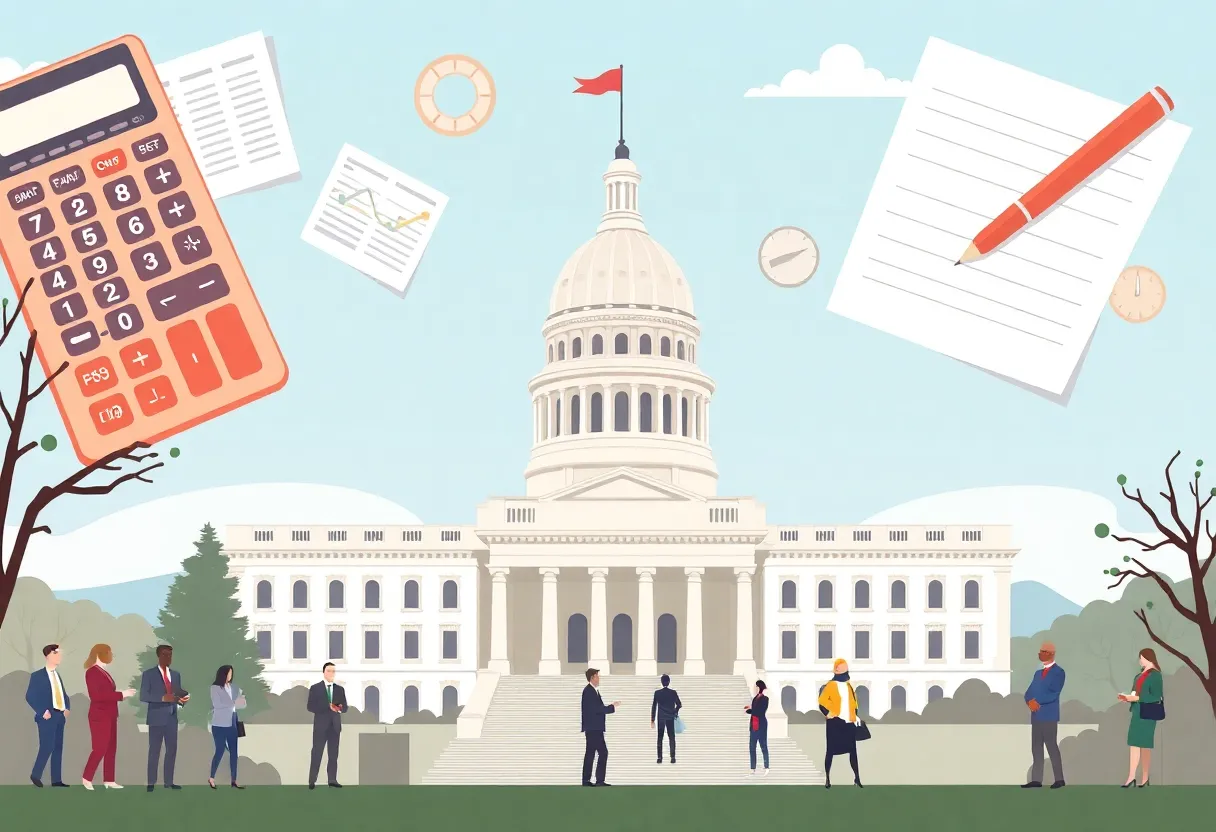California, September 4, 2025
News Summary
California has enacted transformative legislation reforming CPA licensing requirements, notably eliminating the 150-hour college credit prerequisite. This change aims to broaden access and address the talent shortage within the accounting industry by introducing alternative pathways to licensure. By the end of the year, the number of states offering such alternatives is expected to grow from 21 to 25. The new rules will facilitate practice across state lines and enhance job opportunities for aspiring CPAs, signaling a significant shift in the accounting landscape.
California Legislation Reforming CPA Licensing Passes
California lawmakers have passed significant legislation aimed at reforming the licensing requirements for Certified Public Accountants (CPAs), a move that could reshape the accounting industry within the state and beyond. This new law is expected to remove the 150-hour college credit requirement, a longstanding barrier preventing many candidates from entering the profession. By the end of the year, the number of states offering alternative CPA licensure pathways is projected to increase from 21 to 25.
The legislation positions California among major states like Massachusetts, New Jersey, and New York, which are also progressing toward similar reforms in CPA licensure. While New York’s CPA law has been approved by the legislature, it awaits the governor’s signature.
This reform has garnered considerable attention from advocates seeking to enhance the appeal of accounting careers and address a growing talent shortage in the industry. With the changes, California aims to facilitate a more accessible route for aspiring CPAs, making the profession less daunting to enter.
Details of the Reform
Under the new California law, CPAs will face reduced requirements for practicing across state lines, as the legislation eliminates the need for so-called “substantial equivalency” in educational backgrounds for out-of-state CPAs. Furthermore, the bill, which successfully cleared the California Senate before the September 12 deadline, removes the necessity of the 150-hour education requirement in favor of alternative pathways. These pathways aim to preserve candidate quality while enhancing accessibility to the profession.
The California Board of Accountancy is set to implement these new rules which also stipulate that CPAs must be employed through companies registered with the board. This is part of a broader initiative to adapt to current trends affecting the accounting labor market, including the rise of artificial intelligence and offshore outsourcing, which is increasing demand for flexibility in licensing requirements.
Addressing Talent Shortages
The ongoing discussions regarding the 150-hour educational mandate highlight critical conversations about barriers to entry in the accounting profession, particularly for minority candidates. Observers suggest that without substantial reforms, the decline in accounting graduates and those from underrepresented groups entering the CPA profession may worsen in the coming years.
Both the American Institute of CPAs (AICPA) and the National Association of State Boards of Accountancy (NASBA) are actively seeking feedback on alternative pathways to licensure, signaling a commitment to ongoing reforms that reflect the demands of the current labor market.
Potential Impact on the Accounting Profession
The successful passage of this legislation is indicative of a significant shift in the accounting profession, aiming to make the CPA pathway more inclusive and responsive to modern-day market needs. As California adjusts its licensing standards, it may also lead to broader national trends in CPA licensure, potentially influencing the practices of other states as they observe the effects of California’s reforms.
Conclusion
The California CPA licensing reform marks a pivotal change for the accounting industry, providing a template for other states considering similar pathways. As the legislation unfolds, its impact on the availability of qualified accounting professionals will be closely scrutinized, particularly in light of an ongoing national talent shortage.
FAQ
What is the new CPA licensing reform in California?
The reform aims to eliminate the 150-hour college credit requirement, facilitating easier access for aspiring CPAs.
How many states will have alternative CPA licensure pathways by the end of the year?
The number is expected to increase from 21 to 25, including California.
Why is the legislation significant?
It seeks to make the accounting profession more accessible and address a talent shortage in the industry.
What changes does the new law implement for out-of-state CPAs?
Out-of-state CPAs will face fewer requirements to practice in California, as the bill removes “substantial equivalency” prerequisites.
Key Features of CPA Licensure Reform
| Feature | Previous Requirement | New Requirement |
|---|---|---|
| College Credit Requirement | 150 hours | Eliminated |
| Out-of-State Practice Requirements | Substantial equivalency needed | Fewer requirements |
| Employment Registration | None | Must be employed with registered firms |
Deeper Dive: News & Info About This Topic
- CFO Dive: California CPA Pathways Bill Heads to Governor Newsom’s Desk
- CPA Journal: NASBA and the AICPA Propose an Alternative Path to CPA
- Sacramento Bee: California CPE Requirements for CPAs
- Accounting Today: States Move Beyond the 150-Hour Rule for CPA Licensure
- Wikipedia: Certified Public Accountant

Author: STAFF HERE CORONADO
The Coronado Staff Writer represents the experienced team at HERECoronado.com, your go-to source for actionable local news and information in Coronado, San Diego County, and beyond. Specializing in "news you can use," we cover essential topics like product reviews for personal and business needs, local business directories, politics, real estate trends, neighborhood insights, and state news affecting the area—with deep expertise drawn from years of dedicated reporting and strong community input, including local press releases and business updates. We deliver top reporting on high-value events such as the Coronado Island Film Festival, productions at Lamb’s Players Theatre, community workshops at John D. Spreckels Center, and iconic celebrations at Hotel del Coronado. Our coverage extends to key organizations like the Coronado Chamber of Commerce and Visit Coronado, plus leading businesses in hospitality, dining, and tourism that drive the local economy. As part of the broader HERE network, including HERESanDiego.com, HEREHuntingtonBeach.com, HERELongBeach.com, and HERELosAngeles.com, we provide comprehensive, credible insights into Southern California's dynamic landscape.





